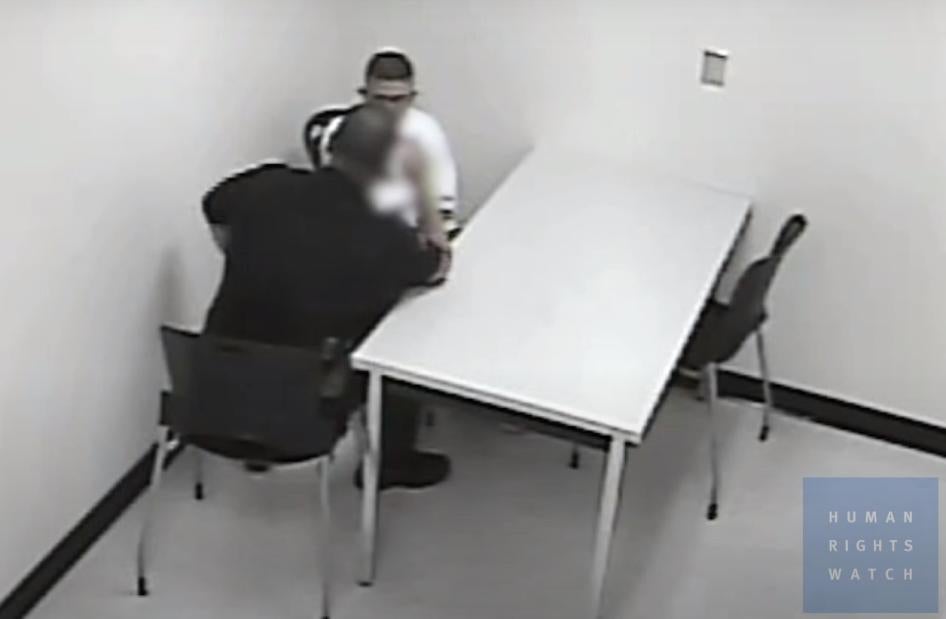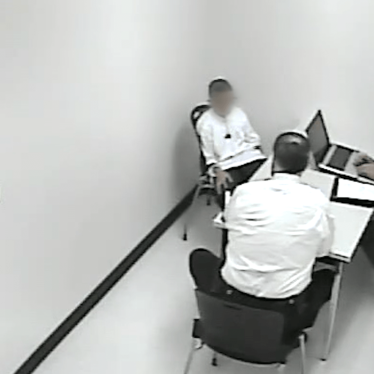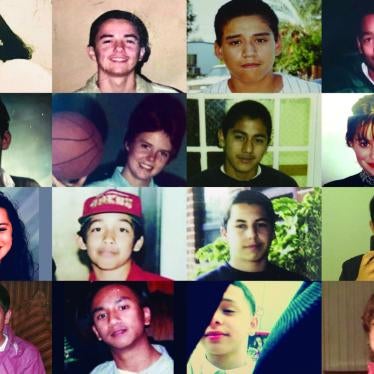(Sacramento) – A new California law will protect children in police custody, Human Rights Watch said today. The measure, signed by Governor Gavin Newsom on September 30, 2020, will make sure youth talk with an attorney while deciding whether to waive their rights and submit to police interrogation.
Long-established law requires that when police take a person into custody, they advise that person of their right to remain silent and that their responses to police questioning can be used against them in court (“Miranda warnings”). Children, whose brains are still developing, are less able than adults to understand complex legal ideas and the ramifications of submitting to questioning by police.
“Everyone has heard TV cops rattle off Miranda warnings, but in real life, most youth do not understand what those warnings mean or what can happen to them once they give up those rights,” said Elizabeth Calvin, senior children’s rights advocate at Human Rights Watch. “Youth are particularly vulnerable to police tactics aimed at eliciting confessions. This new law will make sure that no child is left to figure out their options alone when facing the prospect of interrogation.”
Prior to recent changes in law, a child was allowed to give up important constitutional rights without understanding what those rights meant or the consequences of waiving them. In 2018, California began to bar police questioning for children in custody who are under the age of 16 until they have had an opportunity to understand their rights with the help of an attorney. The new law, Senate Bill 203 (Bradford), bans police custodial interrogation of any youth under age 18 until the young person has consulted with an attorney about their rights. The bill passed with bipartisan support, and two-thirds of policymakers in both the Senate and Assembly voted in favor.
Children have been allowed to give up their rights without understanding them, Human Rights Watch said. In one California case, a 10-year-old questioned by police said that he thought that the right to remain silent meant the “right to remain calm.”
The bill may also help prevent children from falsely confessing to crimes they did not commit, Human Rights Watch said. Children are much more likely than adults to make such confessions. A study of exonerations found that 42 percent of exonerated juveniles had falsely confessed, compared with 13 percent of adults. Many police departments use questioning techniques designed to elicit confessions.
Human Rights Watch, along with other children’s rights advocates and experts, had urged California’s legislature to pass this bill. The American Academy of Child and Adolescent Psychiatry recognizes that children’s brain development, specifically the area related to reasoning, continues to mature well into early adulthood. Children and adolescents differ from adults in the way they behave, solve problems, and make decisions, and the academy has advised that an attorney should be present with anyone under 18 during any police questioning.
“This new law means fewer false confessions and fewer wrongful convictions,” Calvin said. “We know there are police who get away with abusive interrogation techniques behind the closed door of an interrogation room. This law will make it a lot harder for them to harm children with those tactics.”








